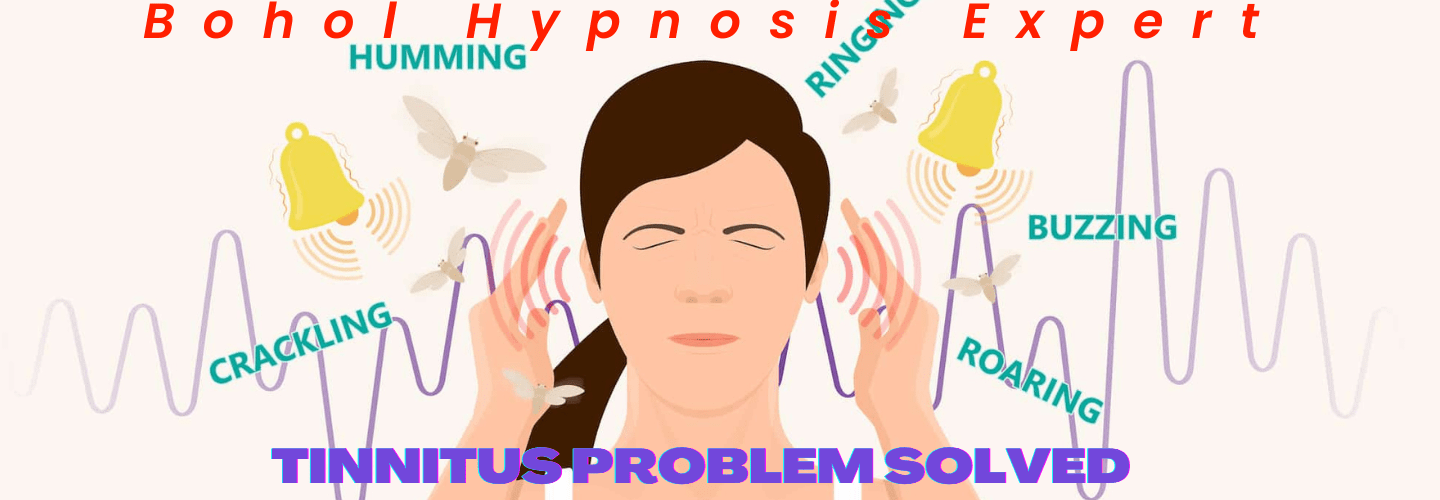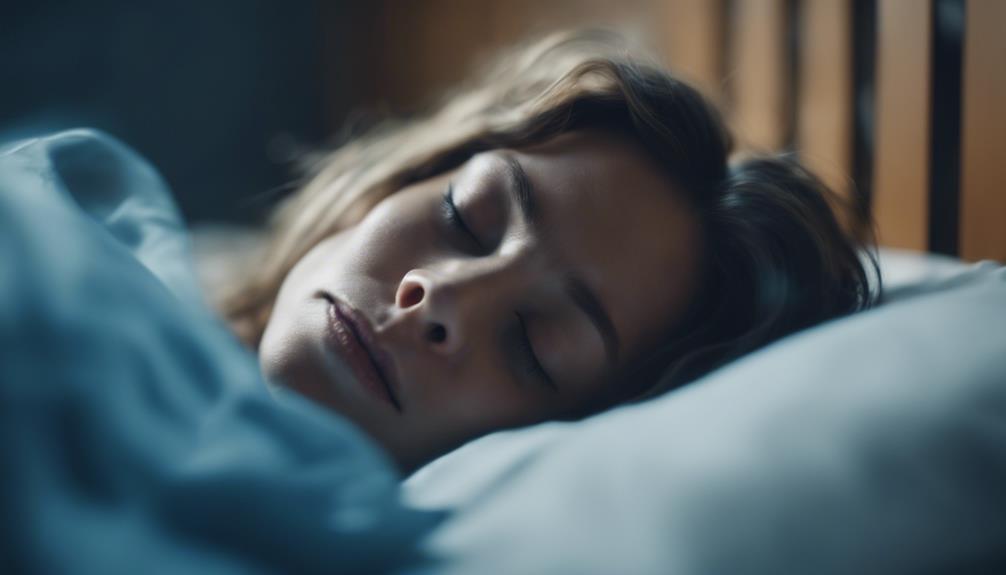
You can resolve insomnia through self-hypnosis, proven to enhance sleep quality and reduce anxiety without medication. Techniques like relaxation visualization and positive affirmations promote deep relaxation and positive sleep outcomes.
Utilizing hypnotherapy techniques, hypnosis reframes negative thoughts and behaviors related to sleep, improving sleep patterns through positive suggestions. It’s a non-invasive method that bypasses negative thoughts, promoting relaxation and better sleep. Hypnosis can also address underlying factors contributing to sleep problems. Maximize benefits by consulting a healthcare professional, identifying health conditions impacting sleep, and developing consistent bedtime routines.
Key Takeaways
- Self-hypnosis improves sleep quality and duration.
- Reduces anxiety and stress levels.
- Cost-effective, non-invasive approach for insomnia.
- Utilizes hypnotherapy techniques to reframe thoughts.
- Enhances cognitive behavioral therapy outcomes.
Benefits of Self-Hypnosis for Insomnia
Self-hypnosis for insomnia offers a range of benefits that can positively impact your sleep quality and overall well-being. Research studies indicate that practicing self-hypnosis regularly can lead to improved sleep quality and duration.
By engaging in self-hypnosis techniques, individuals can effectively reduce anxiety and stress levels that often contribute to insomnia. This non-invasive and drug-free approach empowers individuals to take control of their sleep patterns and address underlying issues disrupting their ability to sleep soundly.
Moreover, self-hypnosis is considered a cost-effective method for managing insomnia. It provides individuals with a tool that’s accessible and can enhance their overall well-being without the need for expensive medications or treatments.
The effectiveness of self-hypnosis in improving sleep quality has been supported by various studies, highlighting its potential as a valuable alternative for those struggling with insomnia.
Techniques for Self-Hypnosis
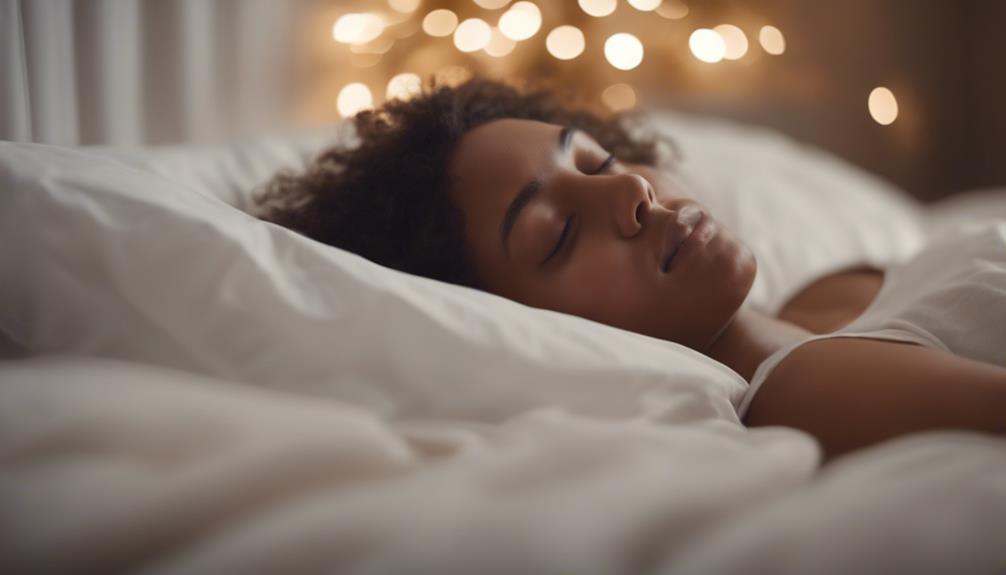
To enhance your self-hypnosis practice, consider techniques like:
- Relaxation through visualization
- Positive affirmations for sleep
- Guided imagery.
These methods can help you achieve a state of deep relaxation, focus your mind on positive sleep outcomes, and create a calming mental environment conducive to restful sleep.
Relaxation Through Visualization
Visualization techniques in self-hypnosis involve creating calming mental images to induce relaxation and reduce anxiety, aiding in promoting deep relaxation conducive to falling asleep.
To enhance your understanding, here are three key points about relaxation through visualization:
- Imagery for Relaxation: Visualizing peaceful settings such as a tranquil beach or a serene forest can help you unwind and prepare your mind for restful sleep. These calming mental images serve as a mental escape from stressors, promoting a state of tranquility conducive to falling asleep.
- Guided Visualization: Engaging in guided visualization during self-hypnosis directs your focus towards positive imagery, diverting attention from racing thoughts and worries. This practice can assist in easing your mind, facilitating the onset of sleep by creating a soothing mental environment.
- Consistent Practice: Regularly incorporating visualization techniques into your self-hypnosis routine can improve your ability to enter a relaxed state and enhance overall sleep quality. By persistently engaging in these calming mental exercises, you can strengthen your mind’s capacity to achieve deep relaxation and promote restful sleep.
Positive Affirmations for Sleep
Utilizing positive affirmations in the context of improving sleep through self-hypnosis involves repeating calming statements to foster relaxation and enhance sleep quality. By incorporating positive affirmations tailored to address specific sleep concerns such as racing thoughts or anxiety, individuals can effectively reframe negative beliefs and cultivate a peaceful mindset conducive to better sleep.
These personalized affirmations play an essential role in self-hypnosis for insomnia, allowing individuals to target areas of improvement based on their unique needs and preferences.
Consistent practice of positive affirmations during self-hypnosis sessions serves to reprogram the mind, gradually replacing disruptive thought patterns with positive, sleep-promoting beliefs. This reprogramming process helps establish improved sleep patterns over time, leading to enhanced overall sleep quality.
Through the power of positive affirmations and self-hypnosis, individuals can actively work towards achieving a state of deep relaxation and restful sleep, ultimately supporting their journey to better sleep health.
Guided Imagery Techniques
Incorporating guided imagery techniques into your self-hypnosis practice can greatly enhance relaxation and improve sleep quality. Guided imagery involves creating detailed mental images to promote a sense of calm and well-being.
Here are three ways guided imagery can benefit your self-hypnosis sessions:
- Visualization of Calming Scenes: By picturing tranquil environments or peaceful scenarios during self-hypnosis, you can reduce stress and anxiety levels before bedtime, setting the stage for restful sleep.
- Promotion of Positive Imagery: Focusing on positive imagery during self-hypnosis can help you cultivate a more optimistic mindset, which can enhance your ability to fall asleep easily and enjoy uninterrupted rest throughout the night.
- Transformation of Negative Thought Patterns: Utilizing guided imagery in self-hypnosis can be a powerful tool for reshaping negative thought patterns that may be hindering your sleep. By replacing these thoughts with soothing mental images, you can create a more conducive environment for restful sleep and overall well-being.
Understanding Sleep Hypnosis
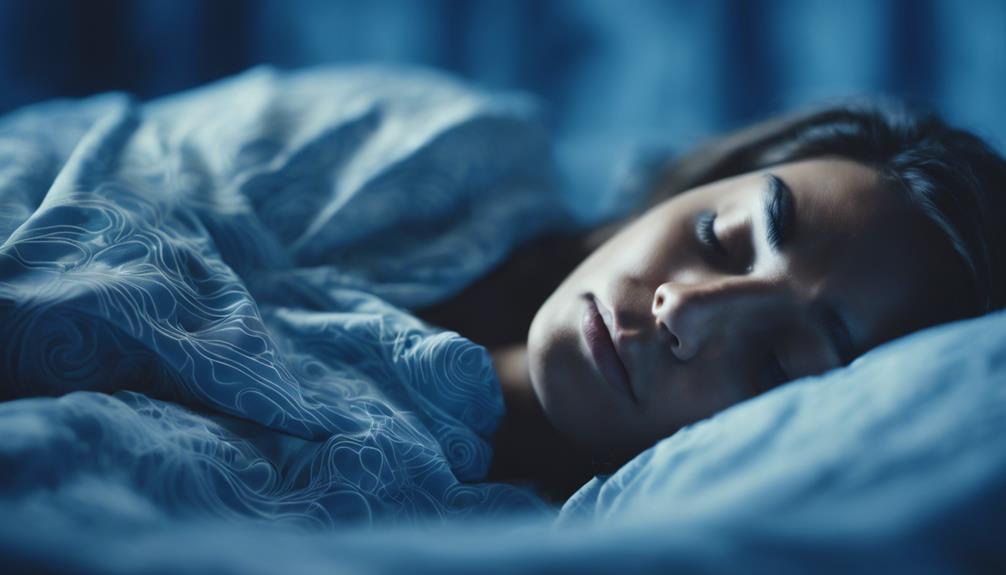
Sleep hypnosis utilizes hypnotherapy techniques to address and improve sleep issues by targeting negative attitudes and habits.
The primary objective isn’t to induce immediate sleep but to reframe thoughts and behaviors surrounding sleep.
Research indicates the potential benefits of hypnotherapy in enhancing sleep quality and complementing traditional treatments.
Benefits of Hypnotherapy
Hypnotherapy offers a unique approach to addressing sleep issues by utilizing specialized techniques to promote relaxation and improve overall sleep quality. When it comes to sleep hypnosis, there are several benefits worth considering:
- Improved Sleep Quality: Through hypnotherapy, individuals can work on changing negative attitudes and behaviors surrounding sleep, ultimately leading to enhanced sleep quality and duration.
- Anxiety Reduction: Hypnotherapy sessions often include tailored suggestions aimed at reducing anxiety levels, which can have a substantial impact on sleep patterns and overall well-being.
- Non-Invasive Approach: Unlike some traditional treatments, hypnotherapy for sleep disorders provides a non-invasive option that doesn’t involve medications, making it a preferred choice for those seeking natural remedies for their insomnia or other sleep-related issues.
Research supports the efficacy of hypnotherapy in treating sleep disorders like insomnia, highlighting its potential to complement other therapies and improve sleep outcomes.
Techniques for Better Sleep
Utilizing hypnotherapy techniques can offer effective strategies for improving sleep quality and addressing sleep-related issues.
Hypnosis for sleep aims at deepening sleep by hypnotic intervention effects, focusing on changing negative attitudes and behaviors towards sleep. Clinical Sleep Medicine research suggests that hypnosis can complement traditional behavioral therapy for insomnia, enhancing its efficacy in helping people sleep better.
During a hypnotherapy session, individuals are guided into a hypnotic state where tailored suggestions are provided to promote deeper sleep. Hypnosis doesn’t force sleep but instead encourages relaxation and the adoption of healthier sleep hygiene practices.
Science Behind Hypnosis and Sleep
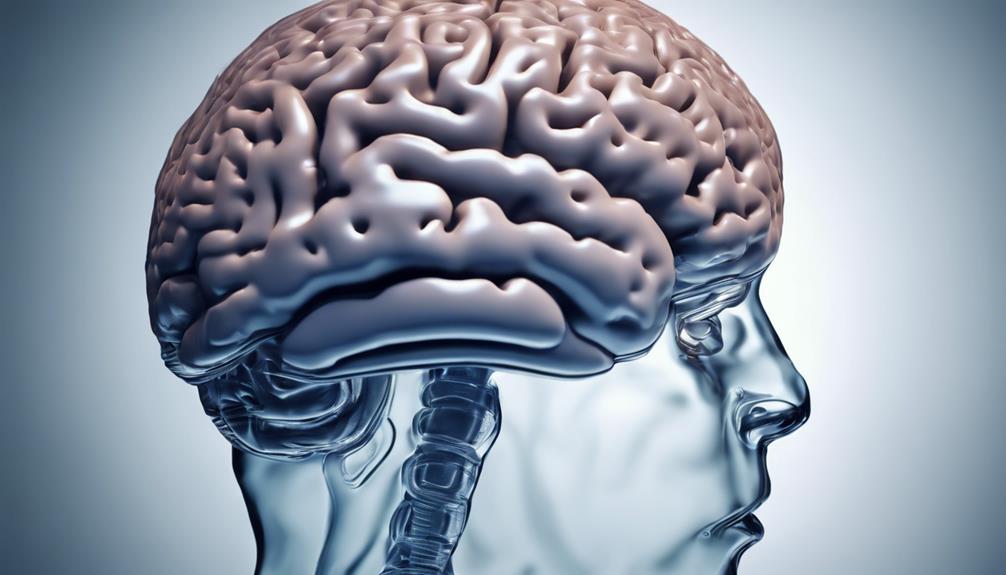
Through a deep understanding of brain activity and suggestibility, the science behind hypnosis reveals the intricate relationship between consciousness and receptivity to therapeutic interventions for sleep-related issues.
Hypnosis is a state of focused consciousness that can enhance receptivity to suggestions for improving sleep quality. This focused state allows individuals to bypass critical or negative thoughts, promoting relaxation and openness to positive affirmations that can improve sleep patterns.
Research supports the use of hypnosis to address sleep disorders like insomnia by changing negative thought patterns, which are often at the core of sleep disturbances. In addition, hypnosis can be combined with cognitive behavioral therapy to optimize treatment outcomes for sleep disturbances.
This combination leverages the power of hypnosis to enhance the effectiveness of cognitive restructuring techniques, providing a holistic approach to tackling insomnia and other sleep-related issues.
Furthermore, self-hypnosis empowers individuals to control the process of relaxation and suggestion for better sleep, offering a personalized and self-directed way to address sleep concerns.
Health Conditions Helped by Hypnosis

Improving sleep quality and addressing insomnia as a health condition have been areas where hypnosis has shown effectiveness. Research indicates that hypnosis, particularly hypnotherapy, can be beneficial in the treatment of insomnia. By targeting the underlying psychological factors contributing to sleep disturbances, hypnosis offers a non-pharmacological approach to improving sleep quality. This method can break the cycle of sleeplessness commonly associated with insomnia.
In addition to addressing insomnia, hypnosis has been found to assist in managing various mental health conditions. The use of hypnotherapy in combination with other treatments has shown promise in enhancing outcomes for individuals struggling with insomnia.
Maximizing the Effectiveness of Hypnosis
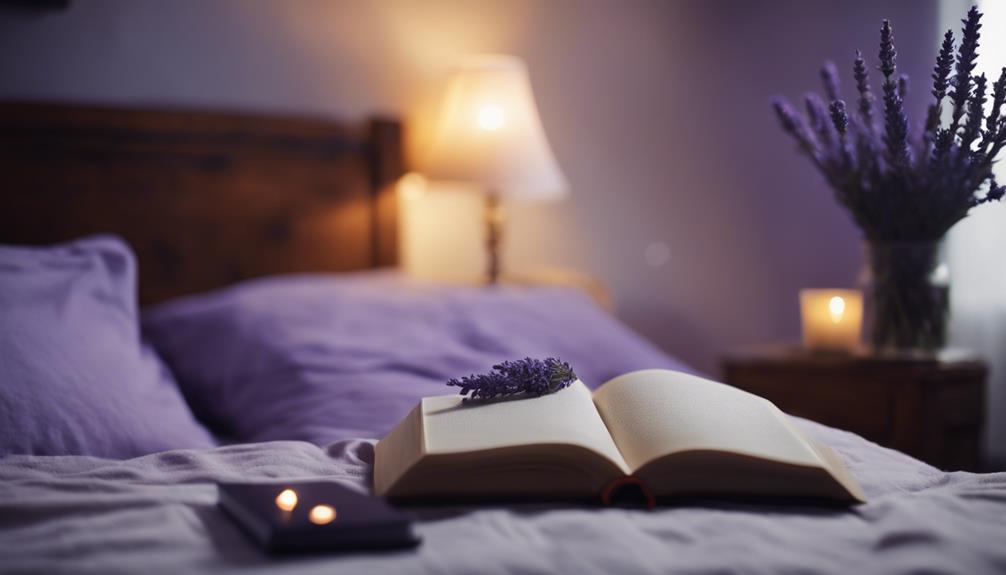
To enhance the effectiveness of hypnosis for improving sleep quality, it’s essential to consult with a healthcare professional to address any underlying health conditions that may impact your ability to sleep.
Here are three key strategies to maximize the benefits of sleep hypnotherapy:
- Consulting Healthcare Professional: Before starting on hypnotherapy for insomnia, it’s vital to seek guidance from a medical provider. They can help identify any underlying health conditions that might be contributing to your sleep difficulties and tailor a treatment plan that includes hypnosis effectively.
- Developing Consistent Routines: Establishing regular bedtime routines and sleep schedules can complement the effects of hypnosis. Consistency in your sleep patterns can enhance the impact of hypnotherapy on your overall sleep quality and duration.
- Monitoring Sleep Patterns: Keeping track of your sleep patterns and the effectiveness of hypnotherapy can provide valuable insights into your progress. By monitoring changes in your sleep quality and duration, you can work with your healthcare provider to make any necessary adjustments to optimize the benefits of hypnosis.
Frequently Asked Questions
Can Self-Hypnosis Cure Insomnia?
Yes, self-hypnosis can effectively resolve insomnia by improving sleep patterns, reducing stress, and enhancing relaxation techniques. Through the mind-body connection, self-improvement benefits, and personal empowerment, it serves as an alternative therapy promoting mental health and sleep hygiene.
Does Self Hypnosis Work if You Fall Asleep?
When you fall asleep during self-hypnosis, your subconscious still absorbs the positive suggestions for deep relaxation, mental focus, sleep induction, guided imagery, and positive affirmations. This process aids in stress reduction, enhancing sleep quality and self-healing.
How Many Sessions of Hypnosis for Insomnia?
You’ll find hypnosis effectiveness for insomnia varies. Typically, 4-6 sessions are recommended. Understand your insomnia triggers, practice self-guided techniques, monitor sleep patterns. Embrace the mind-body connection, use relaxation methods, hypnotic suggestions, deep breathing, and mental focus for best results.
How Did I Cured My Chronic Insomnia?
You cured your chronic insomnia by improving sleep patterns, practicing relaxation techniques, incorporating mindfulness, optimizing sleep environment, enhancing sleep hygiene, managing stress, engaging in cognitive therapy, making lifestyle changes, establishing a bedtime routine, and reaping meditation benefits.
Conclusion
To sum up, self-hypnosis can be a powerful tool for resolving insomnia. By utilizing techniques such as positive visualization and relaxation, individuals can improve their sleep quality and overall well-being.
For example, a recent study found that a woman suffering from chronic insomnia was able to achieve restful sleep after regularly practicing self-hypnosis.
Incorporating self-hypnosis into a bedtime routine may be an effective strategy for those struggling with sleep issues.

Take the Next Step
Do not be afraid to reach out to me, Mark , to assist you in any issues you might have. Need a good listener or someone to confidentially talk too? . Life Coaching is 45 minute session, once a week.
Self-Hypnosis is taught in one session, individual sessions or in a group, and lasts a lifetime. Most Hypnotherapy sessions including Age regression last 2 hours and EFT Sessions are usually handled with a one hour session
To make an appointment, first listen to the Pre-talk and fill out the Complementary Healthcare Provider Disclosure. The use the Contact Form to request an appointment with, Mark, The Bohol Hypnosis Expert.
Self-help downloads are available to help you with specific problems. The self-hypnosis program to teach you how to self-hypnotize yourself is available here.

